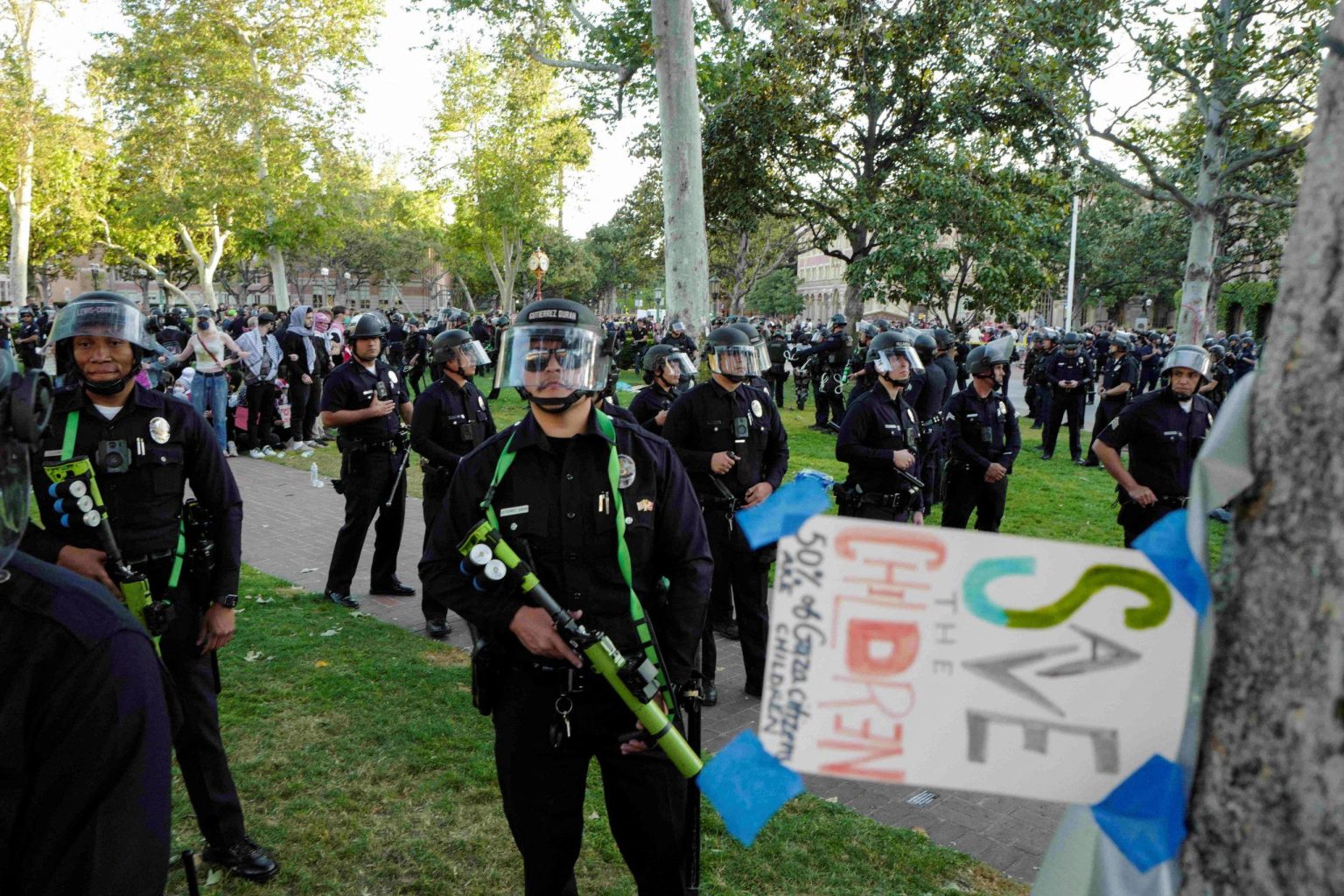The University of Southern California announced that its campus will remain closed “until further notice” following an anti-Israel protest that ended with 93 arrests. The protest, called the “Gaza Solidarity Occupation,” began Wednesday morning and was one of many demonstrations taking place on college campuses across America. The Los Angeles Police Department arrived at the USC campus around 4 p.m. after agitators refused to follow the university’s request to leave the area. After hours of clashing with campus police and the LAPD, the protest ended with 93 people arrested for trespassing. Additionally, one person was arrested for assault with a deadly weapon during an altercation within the protest area.
The protest prompted USC Provost Andrew Guzman to address the campus community, stating that while the university supports freedom of expression for students, there are guidelines that must be followed for a demonstration to take place. Guzman explained that there are policies in place regarding the time, place, and manner of free expression, which include restrictions on erecting tents, use of loudspeakers, signs on poles or stakes, and the disruption of classes or essential functions of the university. The protest outside of Doheny Library, which is in the center of academic buildings, appeared to involve many individuals who were not affiliated with the university. Agitators were repeatedly asked by security to remove their tents and prohibited items and relocate to a compliant location, but they refused, leading the university to contact the LAPD for reinforcements.
The decision to close the gates to campus to unauthorized visitors “until further notice” was made in an effort to restrict the growth of the protest and maintain the campus’s calm. Guzman emphasized that the closure does not affect students, staff, or others with proper USC identification. He also reminded students that USC rejects speech that is hateful and causes harm to others. In challenging times, he called on the Trojan Family to remember that every member of the community deserves respect, safety on campus, the ability to take classes, and participate in activities without fear of harassment or bullying. It was stressed that it should be everyone’s priority to treat each other with kindness and care.
One person was arrested for assault with a deadly weapon during the USC protest, but it was not specified what the weapon was or any further details about the incident. The Los Angeles Police Department confirmed that there were no injuries reported to agitators or officers during the demonstration. At almost midnight, USC announced that the protest was declared over but the campus would remain closed until further notice. People with proper identification, such as students, faculty, staff, and those with business on campus, were allowed to enter. The closure was a precautionary measure aimed at maintaining order and ensuring the safety of the campus community.
The USC protest is just one of many anti-Israel demonstrations taking place on college campuses across America. It is part of a larger trend of nationwide disruptions by anti-Israel agitators, with escalations also occurring at Harvard and Columbia universities. Despite the arrests and the aftermath of Wednesday’s protest, the university continues to uphold its commitment to allowing freedom of expression while also ensuring that guidelines are followed to maintain a safe and respectful campus environment. The situation serves as a reminder of the importance of respectful dialogue and peaceful demonstration in an academic setting, as well as the need to balance freedom of expression with the safety and well-being of the campus community.


